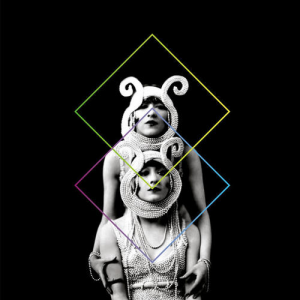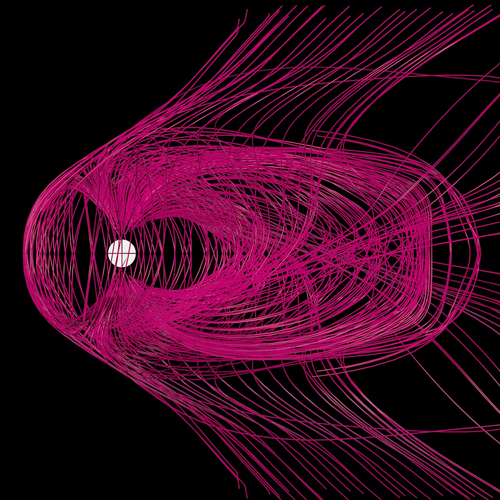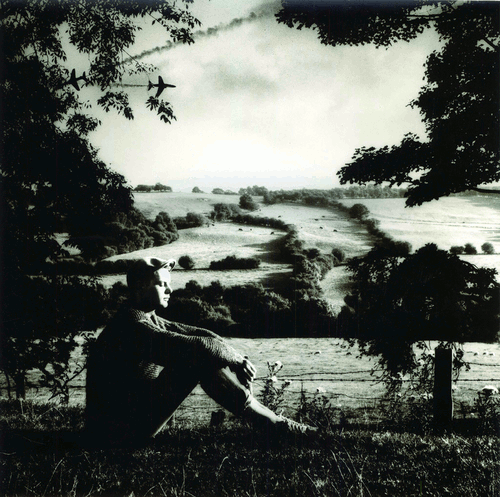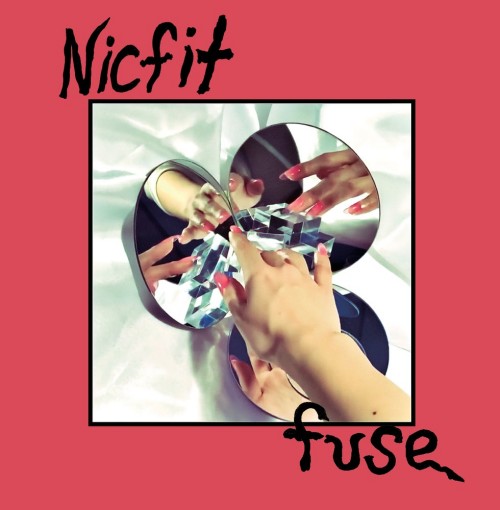 Julie’s Haircut has been turning any preconceptions about the idea of Italian music on their heads for the best part of twenty years. I remember catching them with Sonic Boom in Bristol some ten years or so ago, and the record they released together at the time expanded minimal psychedelic guitar repetition in two different directions. All these years later, the latest album and their first for the ever-reliable Rocket Recordings finds them with just a toe dipped in the ever-expanding ocean of psychedelic music, but with the rest of their body stretched into ever disparate genres; and this evokes a greater sense of freedom then perhaps would be expected.
Julie’s Haircut has been turning any preconceptions about the idea of Italian music on their heads for the best part of twenty years. I remember catching them with Sonic Boom in Bristol some ten years or so ago, and the record they released together at the time expanded minimal psychedelic guitar repetition in two different directions. All these years later, the latest album and their first for the ever-reliable Rocket Recordings finds them with just a toe dipped in the ever-expanding ocean of psychedelic music, but with the rest of their body stretched into ever disparate genres; and this evokes a greater sense of freedom then perhaps would be expected.
The eleven-minute opener “Zukunft” is the absolute pinnacle of the album and a benchmark by which we will be judging tracks of this sort in the future. It is one of the most sublime things I have heard in ages; a slow swell, a classic motorik bass-line, delicate electric piano, a sweet shiver of guitar. The sense of space is akin to mid-’70s Miles; the drums eventually kick in but everything has its place and as the song propels itself, sounds drift in and out, motifs return and repeat, a sax blows coolly and deeply, the drums up a gear and the scenery starts to shimmer like heat waves over a desert. After a while the hairs rise on your neck as you realise that this band is so in tune with one another and that magic is happening. It lasts for the prefect length and as it starts to unwind there are points where you were maybe holding your breath a little too long.
Thankfully, the rest of the album is able to seize the gauntlet thrown down by the opener and in a myriad of different ways. “Zukunft” is the only instrumental, but the vocals when they do come in are treated in the way that Loop‘s vocals used to be; almost peripheral, an extra sonic texture in the mix. The six-minute “Fire Sermon”, which circles around a Can-like bass-line in the way a ship revolves around a vortex, has a vocal for about a quarter of the song. However, these give way to an explosion of guitar sparks, splinters flying in all directions, alternating as the song evolves. There are nods to their predecessors, but these are like things seen fleetingly out of the corner of your eye: you faintly recognise them, but only for a split-second and they are gone and you are back in the now.
A slight descent into intense folk on “Cycles” has acoustic guitar interplaying with double-tracked vocals which are overpowered by repetitive keyboard noise. The autumnal feel of the saxophone, all gentle pastoral hues, lends the song a lulling sensation that is an antidote to the more urgent insistence of earlier tracks. As the album meanders to a close, taking in all the various byways that they have chosen, the final track “Koan” has sung-spoken female vocals over bells and the here the rhythm is much less cohesive, a little freer than those that have come before. The bass is gorgeous, supple and buoyant, keeping order as everybody else attempts to leave their mark.
I was saying to the editor how pan-European I feel writing for this website, with music coming from the most unlikely of sources and without meaning to generalise, this is not what I would have expected from Italy. It is urgent yet gentle, thoughtful, adventurous, dramatic and at times mysterious. It contains a lot of what I like in an album, nods to a few perennial favourites, but the band very much cast its own shadow and with this album, it is a hell of a long shadow. This is well worth investigation.-Mr Olivetti-



